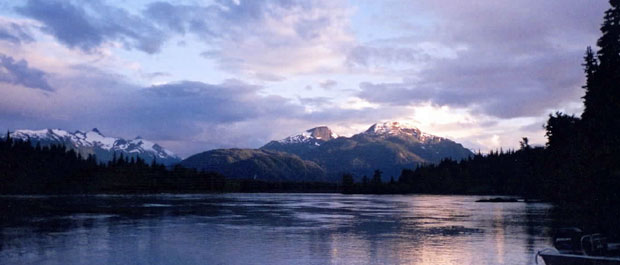Questions communities are asking about mining

Mines vary ⎯ in their geology, geography, and impacts ⎯ and legal, regulatory, economic, and political circumstances differ as well. But there are some similar questions and circumstances communities can face with resource development in British Columbia. Below are a few common questions, along with options for approaches based on how Fair Mining Collaborative works with communities and First Nations.
How can community members who aren’t familiar
with mining get up to speed quickly?
Building community awareness about mine impacts and the regulatory process of proposals can be key to being able to move more quickly and effectively when decision points loom. Working with Fair Mining Collaborative, communities have organized workshops on mining basics so residents have a head start on the information to obtain, and questions to ask, about resource development projects.
What if our community is facing numerous mining-related
issues at the same time, and there are not enough resources
to address all of them?
The pace of mining interest and activity in BC is overwhelming. It becomes essential to know which Notice of Work and which referrals to deal with first, and which can be dealt with later. Resource managers in communities have worked one-on-one with Fair Mining Collaborative on how to read and assess these notices in order to prioritize limited resources and determine which need to go on the front burner and which can be handled later.
Can community knowledge, rather than only western
science, be a factor in decisions on mining in BC?
Yes, and community knowledge typically stretches well beyond western science. Getting government decision-makers to respect this knowledge can be difficult, but it has been accomplished. It takes careful persuasion and facilitation, but bringing officials and staff out of their offices and into communities to take part in meetings can make the difference in ensuring that community knowledge is heard and valued. Fair Mining Collaborative has assisted with this liaison work, as well as working with community members to prepare testimony.
What role can outside experts and scientists play?
It varies. The paperwork on some mining proposals can be hundreds, even thousands, of pages. Fair Mining Collaborative has helped communities wade through them and also assemble teams of technical experts ⎯ including hydrologists, wildlife biologists, aquatic toxicologist, and others ⎯ to assist with evaluation of a proposed mine’s impacts. Expert testimony, combined with community knowledge, can be very helpful.
What can be done to get better information
regarding ongoing mine operations?
With ongoing mine operations, and mine expansions, Fair Mining Collaborative can assist communities with the development of tools for monitoring and auditing compliance with permits and regulation of operational changes, increases or relocations of discharges, and other issues.
Are communities developing their own policies in addition
to dealing with development projects one-by-one?
Yes. Communities that have developed mining and land use policies are able to approach mining development in a comprehensive way. Fair Mining Collaborative has assembled the best legal and policy practices governing mining from around the world, from pre-exploration through reclamation and perpetual water treatment as compiled in our Fair Mining Practices: A New Mining Code for British Columbia. These practices can serve as the basis for mining policy provisions for communities in BC.